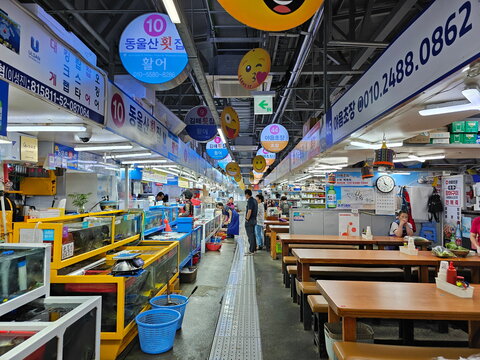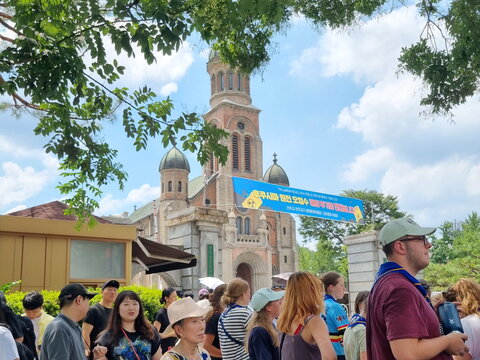Undergraduate Student Spotlights!
Undergraduate students bring their creative insights to the classroom and apply anthropological ideas in critical ways. In highlighting undergraduate students in our anthropology courses and department, we're highlighting the many ways undergraduate students are at the forefront of anthropology. Through this page, we're spotlighting undergraduate students and their exceptional work!
Interested in sharing your summer experience, a class paper or project that you're really proud of? Then fill out this Undergraduate Student Spotlights Form to be spotlighted!
Fall 2023 Spotlight
Nomination by Joe Coyle
ANTH 103: Anthropology in a Changing World is a portal into the world of social-cultural anthropology, equipping students with conceptual and methodological tools to engage the most pressing social issues of our times. By thinking critically about the ways meaning is made across the world, students engage how things like language, religion, kinship, the environment, political stratification, race, class, gender, and sexuality are lived culturally in the contemporary world.
In ANTH 103 we emphasize the importance of putting these tools of anthropology into practice. Students apply anthropological knowledge in a variety of activities including an initial social observation exercise and a more in-depth participant-observation project in which they bring their ethnographic curiosity to their own interactions in the social world. As a summer online course, students in PhD student Joe Coyle’s class were able to conduct short ethnographic fieldwork in a variety of places around the world on many different themes. Projects ranged from the ways people gather late at night in a town square in Tripoli, Greece, to tipping practices at an ice cream shop in rural Indiana; from multi-lingual interactions in a busy market in Medina, Ghana, to the ways value is produced at a sneaker convention in Los Angeles. Featured in this post is an ethnographic report from Will Song who was a participant-observer at a protest demonstration in South Korea over Japan’s release of nuclear waste-water.
We chose to feature Will’s work because of the way he carefully combines the rich sensory details of the protest with important historical and cultural context. Will highlights the variety of stakeholders and their different motivations for demonstrating, providing important ethnographic insight into the relationships between environmentalism, nationalism, and the increasingly precarious conditions of employment for South Korean fishers. Will’s preliminary fieldwork illustrates how one day of anthropological fieldwork can become an important resource for bringing a more reflective and complex analysis to the pressing issues that shape our contemporary world.
Spotlight: Will Song
During my trip to the Wholesale Agricultural and Fish Market in my coastal hometown of Ulsan, South Korea, I participated in an organized protest of the release of contaminated nuclear wastewater in Japan. From the aftermath of the Fukushima nuclear accident in 2011, the radioactive wastewater has been a controversial topic of conversation for East Asian countries in recent months as Japan announced its plan to release all 1.32 million metric tons into the Pacific Ocean this summer. There were nearly two hundred protesters in total, about two-thirds of whom were fishermen and their families. The rest of the population consisted of workers at the seafood market, environmentalists, and local citizens and politicians. On a long straight indoor road with stalls lining both sides, the protesters sat on the ground in organized lines, blocking most of the traffic where the usual morning fish trade took place. Other than locals who had come to buy seafood or to watch the protests, national and international television broadcasting stations were filming on sight, including a Japanese network with a translator to interview the native people. Given my limited knowledge of Japanese, I wondered how these interviews will be translated and framed to the foreign audience.
Talking with several protestors, I identified three major perspectives: protecting livelihoods, environmentalism, and nationalism.
The majority of the protestors, who were local fishermen, were mainly concerned with the impact that the wastewater will have on their livelihoods. These fishermen protested in their work clothes and held handwritten signs, making their demands obvious at first glance. They wanted two things: first, that the Japanese government immediately stop the plan to release the contaminated water, and second, that the Korean government provide plans to safeguard fishermen from economic harm. Not only did they want reassurance for the general public of the safety of seafood in local markets, but they also wanted long-term support in exporting seafood as many of them worked as contracted vendors to global food companies like Lotte and Shinsaegae. These fishermen acknowledged they felt a kind of kinship towards sea-dependent people in other countries as well, including Japan, who were also fighting for their livelihoods.
Environmentalists were also on the site to protest the destructive act of contaminating the seawater. They wore bright orange vests labeled with the name of the international nongovernmental organization and held flags with a nuclear mark on it. By chanting “nuclear means death,” they wanted Korean politicians to deliver a stronger message to the Japanese government to ensure that there won’t be any lasting impacts on the environment. One member informed me that another group from the same movement had travelled to Japan over the weekend to protest in front of the National Diet of Japan, against the wishes of local politicians who wanted to take a more diplomatic approach.
While there were only a few, nationalist protestors also let themselves be heard loud and clear. Their main message was that Korea had already suffered enough at the hands of colonial Japan and that we should no longer tolerate any more harm from the neighboring country. Identifiable from their white headbands and megaphones, these protestors blatantly pointed out the influence of Japan on the International Atomic Energy Agency, or the IAEA, which had inspected Japan’s decontamination facilities, and shouted that we should never trust the IAEA’s report. The nationalist protestors were the most aggressive in their approach, and while the activities remained peaceful, I felt that any Japanese people, regardless of their opinions about the release of Fukushima’s waters, would feel unwelcome in this group.
During the few hours I spent at the protest, I discovered that the issue of releasing nuclear wastewater in another country affects various aspects of local life in Korea: fishermen fight to maintain their livelihood, politicians try to convince their citizens and negotiate with foreign governments, nongovernmental organizations step in to protect the environment, and global conglomerates assess the situation to ensure their local supply lines.

